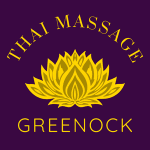Greenock is a town and administrative centre in the Inverclyde area in the West of Scotland, just west of Glasgow & used to be a former burgh within the historic county of Renfrewshire. Situated in the west Lowlands of Scotland, it is part of a continuous urban area with Gourock to the west and Port Glasgow lying further east.
The 2011 UK Census showed that Greenock had a population was 44,248, which was lower than the 46,861 recorded in the UK Census of 2001. It lies on the south bank of the Clyde at the “Tail of the Bank” just where the River Clyde expands into the Firth of Clyde.
News and useful info on Scotland.
Part 3 of the response by Margaret Johnstone to Gerry Hassan’s article in The National, on those who voted No in 2014.
Now to try and address some point made by Gerry’s focus group.
Confidence
The Scottish cringe is in retreat, though not gone yet, with some still clinging to their unionist comfort blanket. The opening of the Scottish Parliament in 1999 caused a surge in confidence, with hope that being loosened from the Westminster yoke we could tailor policies more to what was needed in Scotland rather than scrape by with those tailored to London and the South of England. The first few sessions under the unionists saw that new confidence gradually wane as disappointment over lack of progress ramped up. The SNP win in 2007 saw confidence rise again as belief in our own abilities grew. Westminster and unionists could continue to belittle and demean using such figures as those in GERS (an indication of where we might now be under Westminster, certainly not a forecast of what we could be with independence), but for many Scots there was a belief that we were just as good as others and had the right to determine our own future and what shape it should take.
Independence was never only about oil. Independence has always been about who was best at governing Scotland – a parliament in London, focussed on London, the financial sector and its needs, or a parliament in Edinburgh determined to address Scotland’s needs and requirements.
Challenges and opportunities
As with the Scottish Government’s handling of the coronavirus crisis, a government in an independent Scotland won’t get everything right. No government does. But it will be a government voted in by people living in Scotland and which can also be voted out by them. Unlike Westminster, it will be a government directly responsible to the people of Scotland.

The shade and shape of that government, and the policies it promotes will be up to voters. Going by Scotland’s past voting, it will likely be a left of centre government, though it could be a coalition if that’s what a system of proportional representation delivers. It could even be a Tory government, or coalition with them as the major party, though Scotland hasn’t voted in a majority of Tory MPs since 1955.
Undoubtedly a government in an independent Scotland would face challenges – all governments do. But a wide range of opportunities would also open up – opportunities to pursue policies for a greener country and world, for a more equal and inclusive country with a comprehensive and compassionate social security system, without the fear of our NHS being privatised or in the hands of foreign multinational companies resulting in Scots requiring health insurance before they can be treated.
Education has always been important in Scotland. In this modern world education is even more important as is wide-ranging experience and co-operation of the kind the EU made possible. The present government favours a system of free education. Other parties have different ideas. A well educated workforce or a good education only for those who can afford it? Only one of those options benefits the future of Scotland. But the choice will be that of Scottish voters.
Isolation or internationalism
Given that in the 2016 Brexit referendum 62% of Scottish voters were in favour of remaining in Europe, with recent opinion polls confirming this, it is likely that an independent Scotland will apply for EU membership, though the first step may be to apply for membership of the European Free Trade Association (EFTA) whose members are Norway, Iceland, Liechtenstein and Switzerland, and the European Economic Area (EEA). This would give us access to the single market and would allow for the free movement of people. Membership could take around a year. After that we can consider EU membership.

Scotland would also, like other countries that in recent years have gained their independence, become a member of various international bodies such as the United Nations. We can strengthen the new friendships recently forged with northern European and Arctic nations, important because of the strategic importance of the waters north of Scotland. The Scandinavians appear keen to have closer ties as does Ireland.
The alternative is to cling to England’s coat-tails, ignored and derided, sliding with it into a fossilised backwater, and becoming an irrelevant region of England.
Democracy
Holyrood works in a very different way to Westminster, and for Holyrood and local council elections Scotland uses proportional representation systems. Holyrood, and its MSPs, are more accessible than Westminster and Holyrood is not hidebound by ancient traditions – the most obviously glaring of which is the system of voting in the House of Commons, a place where increasingly centralised control is becoming apparent and many decisions are being taken by ministers and unelected advisers rather than by MPs. So much for democracy!
Independence would not see the replication of an unelected House of Lords in Scotland. The necessity for a second chamber and its format, almost certainly directly elected, will be discussed in the Scottish Parliament and with the wider public. The d’Hondt voting system may be reviewed as there is dissatisfaction over MSPs elected on the list vote. However it’s almost certain we would retain a system of PR, hopefully using the same system for Holyrood and council elections.

At present disquiet rumbles over the Westminster power grab, which is reducing Holyrood’s powers and which could result in lower food and environmental standards than we have enjoyed for decades, and threatens our free at the point of use health service in favour of an American-style health insurance system. Westminster is intent on dragging us down to the level that now suits its right wing majority. Some democracy!
Independence is normal
Scotland had a long history as an independent country and even after 1707 retained its own legal system, education system and church. In 1939, Canada, South Africa, Australia and New Zealand gained independence within the UK Commonwealth. Since then a total of 62 countries have gained independence from the United Kingdom. Other countries have gained their independence from France (28), Spain (17), the Soviet Union (16), Portugal (7) and the USA (5).

All the countries that gained their independence from the UK had it drummed into them that they were too poor to rule themselves, were incapable of it. Yet all have managed and thrived, even little Malta with its population of just over half a million people became independent in 1964 and joined the European Union in 2004. Like all those other countries, an independent Scotland will find its niche in the world. What we make of our independence, and the type of country we forge, will be up to us. Others have been successful, why shouldn’t Scotland also succeed?
Currency

In 2014 the currency issue was a major one. The SNP, possibly believing people would be frightened by too much change, opted for sterlingisation, to remain with the reassurance of the pound for a considerable time after independence. Despite the report of the Growth Commission advocating much the same, there is now a widespread belief that Scotland must have its own currency and have it almost from day one of independence. Others are aghast by this. A good explanation of how a Scottish currency could be introduced is available at – https://www.reservebank.scot/#gsc.tab=0.
Every country uses a currency, most without any handwringing or wailing over its name. Backed by Scotland’s assets, a Scottish currency will do fine, indeed some economists believe it will do extremely well. Scotland with only 8.4% of the UK population possesses 34% of the UK’s natural wealth.
Scotland the Brief, a booklet exploding the myths of Scotland being too poor to stand on its own is well worth reading and is available from https://www.businessforscotland.com/shop/
And before people shudder at the idea of leaving the believed security of the good old UK pound, they should have a read of this articleBritish pound sinking to ‘emerging market currency’ status, by Kamal Sharma, a currency analyst at Bank of America who believes the pound is now an emerging-market currency in all but name.
Conclusion
In the past 50 years Scotland has come a long way. In the last 20 years Scotland has emerged from the shadow of London. We no longer feel second class.
We have pride in our country, ambition, we know the kind of country we want Scotland to be. Not one led by an English public school oligarchy focussed on tearing up rulebooks to make millions for their friends, but one with democracy at its heart, where the quality of lives is paramount, where the benefits of work are enjoyed by all, and where we live in harmony with others and with our planet.

Scotland is unique in many ways. But in terms of its ability to run its own affairs as an independent country it’s just as capable as the other 195 independent countries in the world. Scotland needs to join them and become the 196th.
The above article “Is Scotland really unique? – Part 3” was first shown here.
I hope you found the post above of help or interesting. You can find similar content on our blog Thai Massage Greenock.
Please let me have your feedback below in the comments section.
Let us know what topics we should write about for you in future.
Thai Massage Newsletter
To make sure you don’t miss out on any new posts or promotions that we introduce, sign up for our newsletter.
Once a month we run a special promotion for our newsletter members, so sign up now to make sure you don’t miss out.
It’s free and full of great health and nutrition tips and advice on how we can help you achieve your health and fitness goals.






